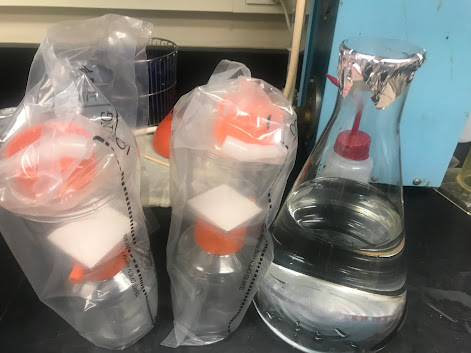Post Blog Week 4
Pursuing cancer treatment using E. coli and a medicinal plant ‘Aloe Vera’
Cancer is a very fascinating and intimidating disease to study in my perspective because everyone is at risk of getting it. I find it intriguing to know more about it, so that we can plan ahead on how we can stabilize it soon enough. Cancer was the second leading cause of death in the U.S after heart diseases in 2020, with over 600,000 cancer-related death and a further 1.8 million expected diagnoses according to NIH. The risk of developing cancer depends on various factors such as: genes, age, gender, lifestyle and behavioral factors such as diet, physical activity, tobacco and drug usage, hormones, growth factors, medications and infectious agents without forgetting environmental exposures.
There is a correlation between bad bacteria in us and cancer. According to Healthline, people with “bad” bacteria have an unhealthy environment that can increase cancer risk. The study says that people with Sneathia for instance were more likely to have HPV which led to precancer and cervical cancer.
Knowing all the factors that contribute to cancer, I cannot think of anyone who is not at risk of getting cancer, and if that many people are dying yearly from it, wouldn’t it be way too worse in the future with all these climate change circumstances?
According to American Association for Cancer Research, In Texas, the flooding of chemical plants and oil refineries caused by Hurricane Harvey in 2017 lead to the release of large amounts of carcinogenic substances into the Houston area. Natural disasters cause major disruptions to medical care, which can delay routine screenings, diagnoses, and treatment for cancer, ultimately increasing mortality rates.
I plan to start with making a media plate and grow E. coli on it. Then I’ll analyze how fast it grows. I will try aloe Vera against E. coli to analyze the reaction/response to this. Many studies show that Aloe Vera, a medicinal plant as the best source for obtaining a variety of drugs. I will make Aloe vera gel. I am hoping to see aloe vera stopping the growth of E. coli and I do want to see how long it will take for this to happen eventually.
My hypothesis: Will Aloe Vera be able to suppress the growth of E. coli and how long will it take for this to happen?
Aschebrook-Kilfoy, B., Zakin, P., Craver, A., Shah, S., Kibriya, M. G., Stepniak, E., Ramirez, A., Clark, C., Cohn, E., Ohno-Machado, L., Cicek, M., Boerwinkle, E., Schully, S. D., Mockrin, S., Gebo, K., Mayo, K., Ratsimbazafy, F., Sanders, A., Shah, R. C., ...Ahsan, H. (2022). An Overview of Cancer in the First 315,000 All of Us Participants. PLoS ONE, 17(9), e0272522. https://link.gale.com/apps/doc/A715828127/SCIC?u=mcc_phoe&sid=bookmark-SCIC&xid=0b4e904b
Kontomanolis EN, Koutras A, Fasoulakis Z, Syllaios A, Diakosavvas M, Angelou K, Symeonidis P, Samara AA, Pergialiotis V, Garmpis N, Schizas D, Pagkalos A, Chionis A, Daskalakis G, Ntounis T. A Brief Overview of Oncogenes and Signal Transduction Pathways in Gynecological Cancer. Cancer Diagn Progn. 2022 Mar 3;2(2):134-143. doi: 10.21873/cdp.10087. PMID: 35399174; PMCID: PMC8962808.
How Does Climate Change Impact Cancer. (2021, March 4). American Association For Cancer Research. aacr.org/blog/2021/03/04/how-does-climate-change-impact-cancer/
Role of Vaginal Bacteria in Cervical Cancer. (2022, May 12). Healthline. https://www.healthline.com/health/cervical-cancer/bacterial-infection-and-cervical-cancer
Efficacy of fresh Aloe vera gel against multi-drug resistant bacteria in infected leg ulcers. (2012 , June 30). National Library of Medicine. https://www.ncbi.nlm.nih.gov/pmc/articles/PMC3395293/#:~:text=Medicinal%20properties%20of%20Aloe%20vera%20have%20been%20recognised%20for%20a%20long%20time.&text=The%20antiseptic%20and%20antimicrobial%20agents,deeper%20layers%20of%20the%20skin.



Comments
Post a Comment